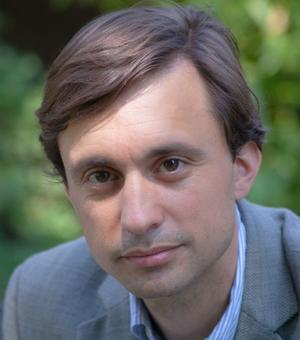Progress in Theology or Series of Theological Ideas? The Divine Action Debate as a Case Study
The fundamental question of this paper is whether there has been any theological progress within the contemporary divine action debate (DAB), or a mere series of theological ideas. By the latter I mean a number of theological doctrines offered one after the other (possibly indicating the problems that previous doctrines might have), while by the former I understand true theological advance in our knowledge of the divine. After a presentation of DAB, I will analyse two criteria for deciding on the question: a general one for epistemological progress, and a particular one for theological progress.
Participants of DAB offered several models for understanding how God might be said to act in the world. Among these, the two most influential are Russell’s quantum divine action and Polkinghorne’s use of chaos theory to explain divine action, both of whom remarked the indeterministic character of nature that twentieth-century science portrayed (against previous Newtonian deterministic science). Russell makes use of this natural indeterminism suggesting that God acts as a complementary cause of nature’s insufficient causality to produce the collapse of a quantum system. Assuming an indeterministic interpretation of chaos theory, Polkinghorne suggests that God could act in chaotic systems by ‘input of active information’. With this proposal, Polkinghorne believes he eludes the basic objection to Russell’s model, namely that God is said to act as a cause among causes. This objection is usually put forward by Thomists who want to emphasise divine transcendence. Rather than assuming this objection and abandoning their proposals, both Russell and Polkinghorne hold to their original proposals with some modifications in Polkinghorne’s case (embracing the conclusion of the objection) or lengthier explanations in Russell’s (looking at Aquinas’ doctrine of miracles to suggest a similarity between positions). Thomists also face objections of closing in either to occasionalism or deism and adopt a similar strategy: they simply further explain their positions (recurring to more technical descriptions of the primary-secondary causation relation).
My first general criterion assumes that epistemological progress requires that a scholarly community abandons theory X that explains A in favour of a theory Y that explains A better, in the sense that Y does not have X’s problems while assuming its benefits. In this sense, DAB has not progressed, since participants do not tend to give up their positions but rather modify them. At best, one might argue that each position has found answers to the objection posed against them, and in this sense they have internally progressed.
My particular criterion assumes that there is theological progress within a theological debate if it offers new insight into the relation between nature and the divine. In this paper, I take insight to refer to new knowledge that helps framing theological debates as a whole beyond the terms of past debates. In this perspective, DAB has shown the necessity and benefit of referring to the indeterministic character of nature if one is to offer a comprehensive narrative of divine action. If this criterion is assumed, then, DAB offers an example of progress in theology.

Ignacio Silva is Associate Professor of Theology and Sciences at the Philosophy Institute, where he co-Direct the MA and PhD programs on Philosophy and the Foundations of Science. He was formerly a Research Fellow at the Ian Ramsey Centre for Science and Religion and a member of the Faculty of Theology and Religion, University of Oxford, where he co-directed research projects for over $3.5M of grants involving scholars in more than a dozen countries in Europe, Latin and North America. He holds degrees in philosophy and theology, and a major theme of his research is the understanding of divine providence in relation to research done in science, philosophy, and theology. His publications include Providence and Science in a World of Contingency. Thomas Aquinas’ Metaphysics of Divine Action (Routledge 2021) and Divine and Human Providence. Philosophical, Psychological and Theological Approaches (Routledge 2020, co-edited with Simon Kopf), Indeterminismo en la Naturaleza y Mecánica Cuántica: Werner Heisenberg y Tomás de Aquino (Servicio de Publicaciones de la Universidad de Navarra, 2011), as well as articles in philosophy of religion, science and religion, natural philosophy, and medieval philosophy, published, for instance, in The Journal of Religion, New Blackfriars, Zygon: Journal of Religion and Science, The Heythrop Journal and European Journal for Philosophy of Religion. He serves in the Executive Committee of the International Society for Science and Religion, of which he is an elected fellow.

